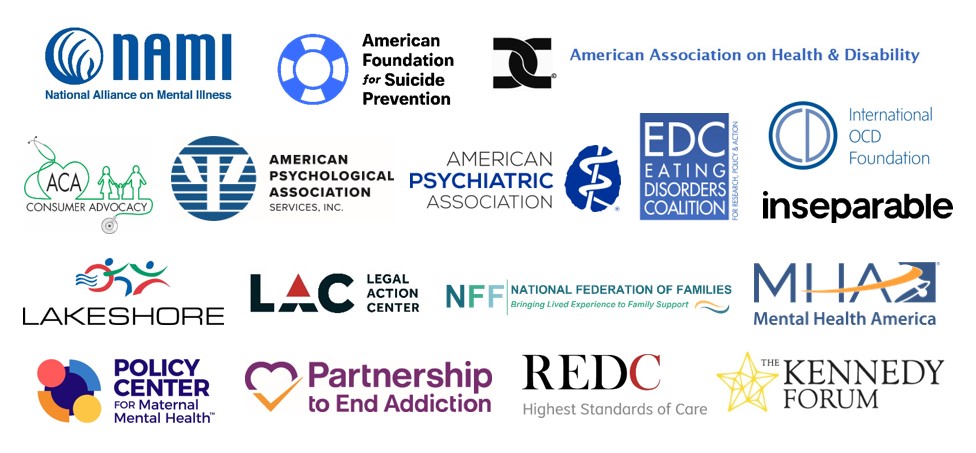Sep 9, 2024

Leading national groups representing people with mental health and substance use disorders and the clinicians who care for them applaud the newly released final rule to strengthen enforcement of the federal parity law that would improve access to mental health and substance use care. Together, the 17 undersigned organizations issue the following statement:
The landmark Mental Health Parity and Addiction Equity Act, which passed with strong bipartisan support has been law for more than 15 years and requires most health insurance plans to cover MH/SUD treatment the same way they cover treatment for any other disease. However, our organizations routinely hear from people who face unfair and potential deadly consequences when they are unable to access necessary MH/SUD care when they need it. In response, Congress amended MHPAEA on a bipartisan basis through the Consolidated Appropriations Act of 2021 to strengthen the existing federal parity law. Last year, the Biden-Harris Administration released a proposed rule outlining policies to implement the new requirements. During the federal public comment period, an overwhelming majority of stakeholders who voiced an opinion on the proposed rule were people represented by our organizations. Advocates shared their lived experience with persistent challenges to obtaining timely, affordable care and underscored the urgent need for stronger enforcement of the parity law.
These new requirements are critical to meeting the needs of people as the U.S. continues to address ongoing mental health and overdose crises. These changes will narrow the gaps in access by requiring health insurance companies to demonstrate with data that people seeking MH/SUD care have the same access to in-network services – without having to jump through more hoops – as those seeking physical health services. By strengthening the accountability tools available to oversight agencies, the final rule will force health insurance companies to remove discriminatory burdens, making it easier for people to receive timely access to MH/SUD treatment.
We are grateful to the Biden-Harris Administration for listening to the voices of thousands of our advocates. We are proud to support this rule as an important step towards health equity for all.”
National Alliance on Mental Illness (NAMI)
ACA Consumer Advocacy
American Association on Health and Disability
American Foundation for Suicide Prevention
American Psychiatric Association
American Psychological Association Services
Eating Disorders Coalition for Research, Policy, & Action
Inseparable
International OCD Foundation
Lakeshore Foundation
Legal Action Center
Mental Health America
National Federation of Families
Partnership to End Addiction
Policy Center for Maternal Mental Health
REDC
The Kennedy Forum
NAMI HelpLine is available M-F, 10 a.m. – 10 p.m. ET. Call 800-950-6264,
text “NAMI” to 62640, or chat online. In a crisis, call or text 988 (24/7).